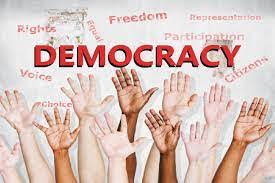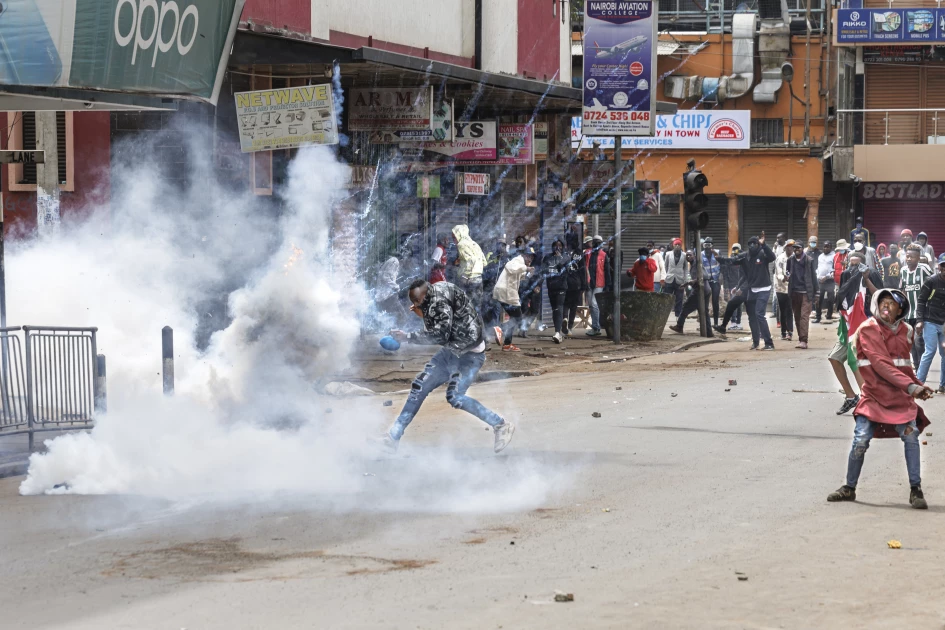
Is Democracy Eroding as Enforcers Silence Dissent? Discover the Alarming Trends.


In contemporary political landscapes, the deployment of enforcers and hooliganism to suppress demonstrations has become an increasingly troubling tactic. This strategy not only undermines the democratic process but also erodes public trust in political institutions and leaders.
The deliberate use of violence and intimidation to silence dissent represents a cynical manipulation of power that prioritizes political survival over the rights and voices of the citizenry. Often, when violence and intimidation fail, authorities resort to co-opting the ringleaders of dissent to cripple the movement. This begs the question: why do those in power find it difficult to address the grievances of protesting citizens and curb growing economic stagnation? Decision-makers often make impractical and short-sighted choices when dealing with national issues.
In recent political discourse, the controversial finance bill led to a massive youth revolt. Initially, the protest was peaceful, with its frontliners, the Gen Zs, invoking Article 37 of the Kenyan constitution. However, subsequent protests were increasingly marred by violence, with the belief that hired enforcers hijacked them.
Hooliganism is rampant in the political space. Authorities with questionable characters often incentivize and suppress dissent when faced with opposition. Some seek the services of enforcers or an army of thugs to intimidate and silence opposition, furthering the wishes of their political patrons. Such leaders will do whatever it takes to remain in power.
These leaders exploit the high unemployment rate to create unorthodox jobs for idle youths who readily accept assignments due to a lack of alternatives. Such leaders also deploy strategies such as “Divide and Rule” to extend their reign. This tactic involves playing tribal politics, where ethnic groups are manipulated to develop hatred against each other. The instigator of this divisive ideology then positions themselves as a savior or mediator to please the warring parties and bolster their political career. Any sign of unity, as witnessed in the Gen Z protest, is usually a threat to crafty leaders as it undermines the “Divide and Rule” strategy upon which their power is founded.
The “Divide and Rule” or “Divide and Conquer” tactic was very effective during the scramble and partition of Africa by colonizers. It aimed at maintaining control over opponents by encouraging dissent between them, thereby preventing them from uniting.
Side Effects of Using Enforcers to Disrupt Demonstrations
Erosion of Democratic Values
The essence of democracy lies in the freedom of expression and the right to peaceful assembly. By employing enforcers to disrupt protests, authorities nullify these fundamental rights. This approach fosters a culture of fear, discouraging citizens from exercising their democratic rights and stifling public discourse.
When people are afraid to voice their concerns due to potential violence, democracy is rendered hollow. Fear and threats are recipes for bad governance. When those in power successfully instill fear in citizens, they abandon the Constitution and operate based on personal interests.
Authorities should be willing to be challenged when they contravene acceptable standards as a way of strengthening the democratic space. Contrary to this fact, self-centered leaders opt to keep the citizenry in the dark to advance their unconstitutional agendas. Democracy should not only exist in writing but also in practice. The right to freedom of expression should be upheld at all times to keep the government in check. Public criticism plays a critical role in the development of a nation and can be achieved in the absence of threats, intimidation, and fear.
Undermining Public Trust
Public trust in political institutions is a cornerstone of a stable society. When authorities resort to hooliganism to quell opposition, it sends a clear message that these institutions are willing to engage in unethical and illegal activities to maintain control. This behavior erodes the credibility of leaders and institutions, leading to widespread cynicism and disengagement among the populace. The long-term consequence is a weakened social fabric and increased political apathy. A leader is a reflection of society. When a leader is detached from societal norms, public mistrust emerges. A leader needs to listen and fulfill the needs of the electorate. Listening is a sign of respect, and it builds trust.
The Human Cost
The human cost of using enforcers to silence dissent cannot be overlooked. Individuals participating in demonstrations often face physical harm, psychological trauma, and, in extreme cases, loss of life. This tactic also incites further violence, leading to a vicious cycle of unrest and repression. The societal impact is profound, as communities are torn apart, and the collective trauma lingers long after the immediate conflict has subsided. Unleashing enforcers on peaceful protesters is a threat to general stability. The populace withholds critical information for fear of being targeted. The high level of intolerance that comes with hooliganism causes disturbances in the community. Lives lost during deadly confrontations rob families of breadwinners and render children orphans. Parents lose children to such unpleasant events. The anti-finance bill protests claimed at least 39 lives, with over 300 injuries.
With hired enforcers hijacking the peaceful protests, massive damages were witnessed. Hooligans pelted stones, burned, and looted both private and public establishments. Individual businesses were crippled, workplaces vandalized, and the reality of unemployment dawned on formerly employed citizens. Article 37 guarantees the right to peacefully protest and picket. This can continue until the government meets the grievances of the protesters. Most governments resort to force to dispel dissidents to prevent a negative image from reaching the international community.
A Call for Ethical Leadership
The use of enforcers and hooliganism indicates the failure of ethical leadership. True leaders should engage with dissenting voices, addressing grievances through dialogue and reform rather than suppression and violence. Political leaders must uphold democratic principles, ensuring that all citizens can freely express their views without fear of retribution. Political parties have adopted biased practices that have always worked against the needs of the populace.
Article By Suzy Nyongesa.
